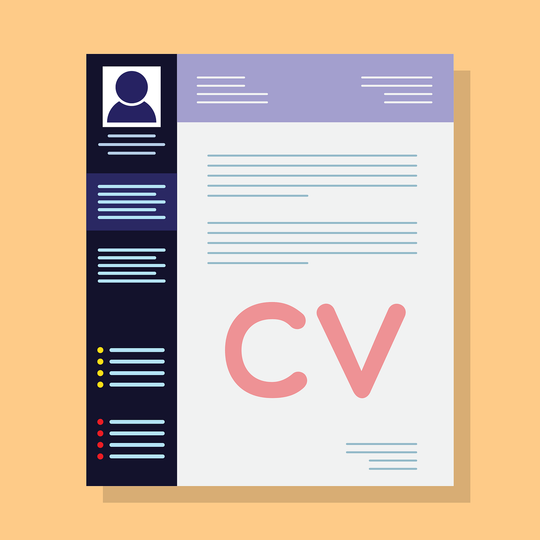How To Ace Any Interview in 2024
By:
Tosin Ayo
On
14/02/2024Reading time:
12 min
Summary:
Acing an interview requires thorough preparation, effective communication, and a positive mindset. In 2024, as the job market continues to evolve, it's essential to stay updated on current trends and tailor your approach to showcase your skills and suitability for the role. Here are some tips to help you ace any interview in 2024:

_7f6b0.png)
Are you ready for that interview?
Research the Company: Familiarize yourself with the company's mission, values, products, services, and recent news or developments. Understand the company culture and how your skills and experiences align with its goals and objectives.
Understand the Job Requirements: Carefully review the job description and identify the key skills, qualifications, and experiences required for the role. Be prepared to discuss how your background and expertise make you a strong fit for the position.
Practice Common Interview Questions: Anticipate common interview questions related to your skills, experiences, strengths, weaknesses, and career goals. Practice your responses to these questions, focusing on providing specific examples and anecdotes that highlight your achievements and capabilities.
Highlight Your Achievements: Be ready to discuss your accomplishments, projects, and contributions in previous roles. Quantify your achievements whenever possible and demonstrate the impact you've made in your past positions.
Showcase Your Skills: Emphasize your technical skills, soft skills, and any relevant certifications or training that demonstrate your qualifications for the role. Discuss how you've applied these skills in previous roles and how they will contribute to your success in the new position.
Demonstrate Adaptability and Problem-Solving Abilities: Highlight your ability to adapt to change, overcome challenges, and solve problems creatively. Share examples of how you've navigated difficult situations or implemented innovative solutions in your previous work experiences.
Ask Thoughtful Questions: Prepare a list of thoughtful questions to ask the interviewer about the company, the team, the role, and the organization's future plans. Asking insightful questions demonstrates your interest in the position and your commitment to understanding the company's objectives.
Practice Active Listening: Listen attentively to the interviewer's questions and comments, and respond thoughtfully and concisely. Demonstrate your ability to engage in meaningful dialogue and communicate effectively.
Dress Appropriately and Arrive Early: Dress professionally for the interview and arrive early to th
Remember to stay positive, be authentic, and showcase your unique strengths and qualifications throughout the interview process.

Crafting Your Path to Success: Creating a High-Quality Resume
In today's competitive job market, a high-quality resume is your ticket to standing out from the crowd and securing the job of your dreams. Your resume serves as a reflection of your skills, experiences, and accomplishments, making it essential to craft a document that effectively showcases your qualifications and highlights your unique value proposition. Whether you're a seasoned professional or a recent graduate, here are some key tips to help you create a high-quality resume that commands attention and opens doors to new opportunities:
_7f6b0.png)
Crafting Your Path to Success: Creating a High-Quality Resume
Start with a Clear and Concise Format: Begin by choosing a clean and professional layout for your resume. Use clear headings, bullet points, and concise language to organize your information and make it easy for recruiters to navigate. Stick to a standard font size and style, and maintain consistent formatting throughout the document.
Tailor Your Resume to the Job: Customize your resume for each job application by highlighting relevant skills, experiences, and accomplishments that align with the job requirements. Carefully review the job description and identify key keywords and phrases that you can incorporate into your resume to demonstrate your suitability for the role.
Include a Compelling Summary or Objective Statement: Start your resume with a brief summary or objective statement that highlights your career goals, key strengths, and value proposition. Use this section to grab the recruiter's attention and provide a snapshot of your qualifications and expertise.
Highlight Your Achievements and Impact: Instead of simply listing job duties and responsibilities, focus on quantifiable achievements and outcomes that demonstrate your contributions and impact.
Emphasize Relevant Skills and Keywords: Create a dedicated skills section where you can highlight your technical skills, soft skills, and industry-specific competencies. Include relevant keywords and buzzwords related to your field to ensure that your resume gets noticed by applicant tracking systems (ATS) and hiring managers.
Provide a Detailed Work History: Outline your work history in reverse chronological order, starting with your most recent position. For each job, include the company name, job title, dates of employment, and a brief description of your responsibilities and accomplishments. Focus on highlighting experiences that are directly relevant to the job you're applying for.
Include Education and Professional Development: List your educational background, including degrees, certifications, and relevant coursework. Be sure to include any professional development activities, workshops, or training programs that demonstrate your commitment to continuous learning and skill development.
Proofread and Edit Carefully: Before submitting your resume, proofread it carefully for spelling, grammar, and formatting errors. Ask a trusted friend, mentor, or professional colleague to review your resume and provide feedback. A polished and error-free resume reflects attention to detail and professionalism.
Use Action Verbs and Active Language: Use strong action verbs and active language to describe your experiences and accomplishments. Start each bullet point with a dynamic verb that conveys action and impact, such as "achieved," "implemented," "led," "developed," or "spearheaded."
Keep it Honest and Authentic: Finally, be honest and authentic in your resume. Avoid exaggerating or embellishing your qualifications, as this can undermine your credibility and damage your reputation. Present yourself in a positive and truthful light, and let your genuine strengths and experiences shine through.
Subscribe to our newsletter
Subscribe our newsletter to get weekly updates.
